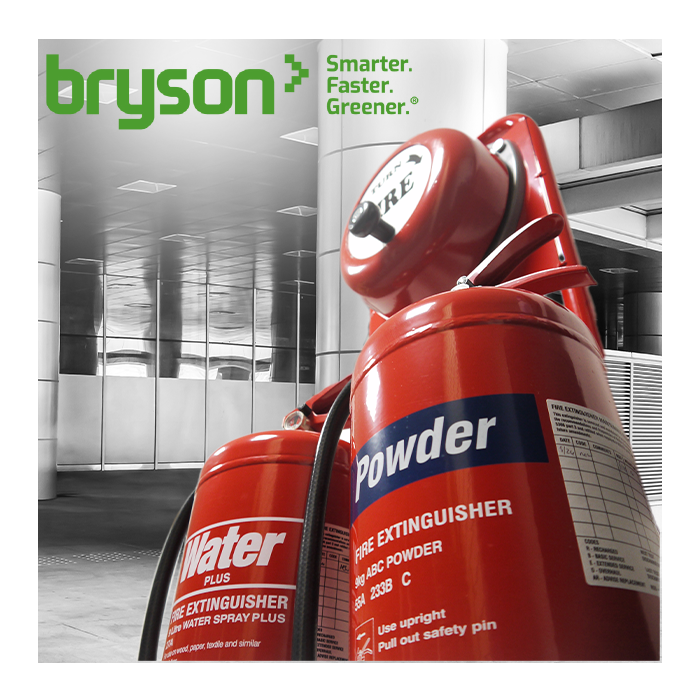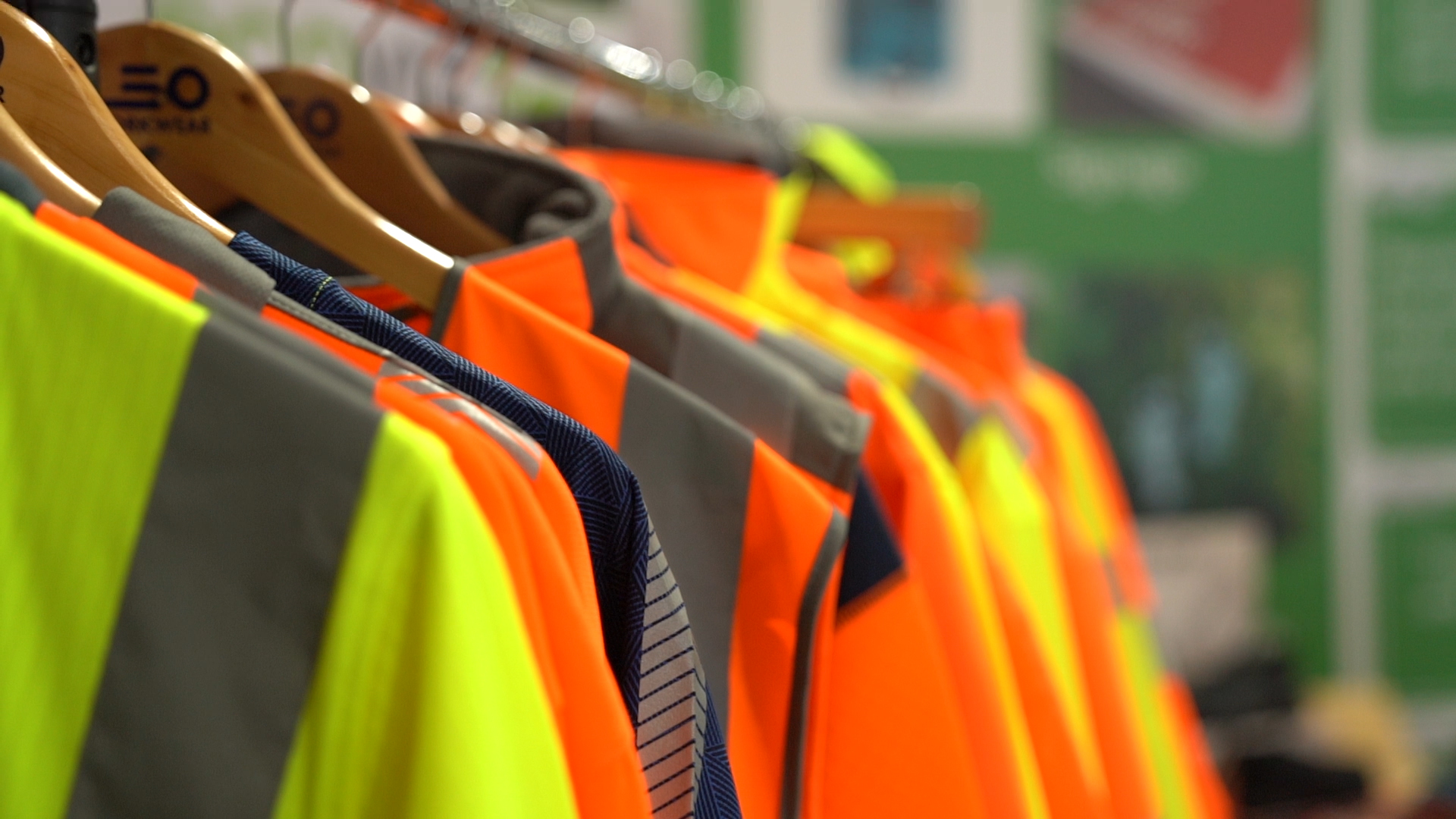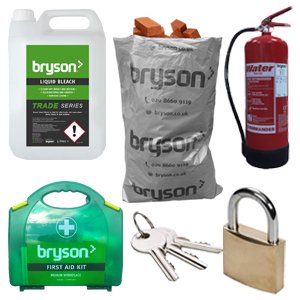
The Construction Landscape is Shifting: Don’t Get Left Behind

AFFF Fire Extinguishers: Time’s Almost Up
One of the most urgent changes affects fire safety equipment. From 4 July 2025, the UK will enforce a total ban on Aqueous Film Forming Foam (AFFF) fire extinguishers containing harmful PFAS substances like PFOA.
Why? Because while AFFF has long been favoured for tackling flammable liquid fires, its environmental and health impacts are severe. PFAS chemicals are known as forever chemicals” - they don’t break down and have been linked to everything from cancer to water contamination. If you still have AFFF extinguishers on your site, now is the time to act.
- Start phasing them out immediately.
- Replace them with compliant alternatives, such as water mist or fluorine-free foam models.
- Arrange safe disposal through accredited waste services.
This is not a recommendation. It’s the law, and failure to comply after the deadline could result in serious consequences. Read more here.
Inclusive PPE: Standards Are Evolving
Personal protective equipment isn’t just about safety—it’s about equality. That’s the core message behind a landmark proposal from the British Standards Institution (BSI), which is working on the first British Standard specifically for inclusive PPE.
BS 30417 is still in draft form, but the implications are already clear: employers will soon be expected to consider the needs of women, religious groups, disabled workers and ethnic minorities in their PPE procurement processes.
Why does it matter? Because for decades, PPE has been based on a “one size fits all” model - one that, in reality, fits very few. Ill-fitting garments compromise safety, limit productivity, and exclude talented individuals from progressing on site. The proposed standard, currently open for public consultation, aims to change that. It encourages:
- Real consultation with diverse users
- Involvement of end users in product selection
- Better representation of underrepresented groups
You can read more about the standard here. It’s a chance to help shape a more equitable industry and ensure your organisation is prepared for future compliance.


Outdated PPE: A Quiet Crisis with Real Consequences
It’s not just inclusivity under the spotlight. Earlier this year, the British Safety Industry Federation (BSIF) sounded the alarm: a shocking 90% of PPE tested from non-registered suppliers failed safety checks.
Let that sink in. Nine out of ten products failed to meet basic protection standards.
This isn’t just about box-ticking. It’s about the safety and wellbeing of every person on your site. And in a legal sense, it puts employers at considerable risk if something goes wrong. Now is the time to:
- Audit your existing PPE stock
- Replace non-compliant or worn items
- Buy only from BSIF-registered suppliers
And remember: PPE isn’t a “buy once and forget” category. Products degrade. Needs change. Frequent checks, and regular upgrades, are now essential.
Defibrillators on Site: The Safety Essential That’s Gaining Ground
They’re not yet mandatory, but many experts argue they soon will be.
Automated External Defibrillators (AEDs)are increasingly recognised as an essential component of site safety - especially given the high-risk nature of many construction environments. A cardiac arrest can strike without warning, and every minute without intervention reduces survival chances by 10%.
The solution is simple and lifesaving: make AEDs part of your core site equipment.
Many companies are already taking the lead, installing defibrillators alongside first aid kits and fire extinguishers. It’s a small investment that could save a life—and it sends a powerful message to your workforce that their wellbeing matters.
If you’re not yet equipped, now’s the time to review your emergency response protocols and put a plan in place.
Sustainability Expectations: Not Just Buzzwords Anymore
Sustainability is no longer an afterthought -it’s a compliance issue, a brand issue, and a business imperative.
With frameworks like the Net Zero Carbon Buildings Standard and proposals such as Part Z gaining momentum, construction firms are under growing pressure to reduce their environmental footprint. That means thinking about waste reduction, circular materials, lower-emission products, and carbon tracking from day one.
Practical changes may include:
- Using recycled materials and low-VOC sealants
- Choosing reusable site protection over single-use options
- Implementing closed-loop waste management systems
Sustainability is also playing a larger role in procurement. Government tenders and private clients a like are now requiring clear evidence of green practices. If your site operations can’t demonstrate progress, you may be left behind.
Don’t Wait Until Next Year: Act Now
The changes coming to UK construction sites in 2025 aren’t abstract -they’re happening now.?
From defibrillators and fire safety upgrades to inclusive PPE and net-zero initiatives, these are not boxes to tick. They’re opportunities: to lead, to improve, and to raise the standard of what a great worksite should be.
Bryson: Supporting Your Mission
At Bryson, we’re here to support that mission. Whether you’re upgrading your safety systems, rethinking your PPE range, or sourcing greener materials, we can help you stay ahead of the curve and fully compliant while doing it.













 Loading, please wait
Loading, please wait